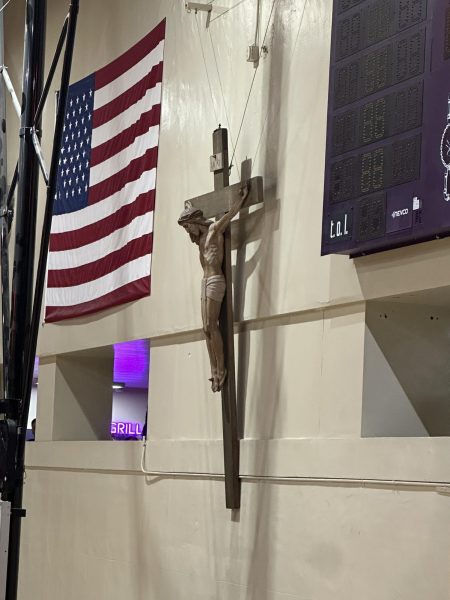CROWN Act shears off discrimination against cultured hair
Nailah Reynolds ’22 and Jeremiah Tejuco ’22 are proud of their natural hair.
May 23, 2022
The CROWN Act (H.R. 2116), which stands for Creating a Respectful and Open World for Natural Hair, is a legislation that would prohibit race-based hair discrimination. Protections would include locs, braids, hair texture, and more.
The 2022 bill (it was introduced in 2021 by Rep. Cory Booker but never passed) was introduced by Rep. Bonnie Coleman Watson [D-NJ-12] with 116 co-sponsors.
Statewide laws have passed in 14 states. In fact, it was first introduced in California in 2019. However, advocates are also trying to pass it as federal law.
As of press time, it has received bipartisan support with a vote of 235-189 in the House. It would need to pass the Senate and be signed into law by President Joe Biden in order for it to become federal law.
The 14 Republicans who voted against it called it “unnecessary,” a “distraction,” and that protection against hair discrimination exists already. In reality, anti-discrimination laws that protect hair do not exist.
The 1964 Civil Rights Act prohibits discrimination on the basis of race, color, religion, national origin, and sex but not hair. Other federal anti-discrimination laws cover disability, pregnancy, and veteran status- but again, not hair.
The NAACP states, “The CROWN Act seeks to close gaps in current anti-discrimination legislature.”
This bill is very significant for several reasons- according to NAACP, “Black hair is… an expression of identity and culture …. carries…. historic connections to Black pride… religion, and history.”
Despite its importance, discrimination against Black people’s hair has barred them against job opportunities, confirmed by Michigan State University and Duke University studies.
Black students have been penalized for their hair because of discriminatory school dress codes. In 2017, twin sisters from Mystic Valley Regional Charter School in Malden, Massachusetts were told to remove their box braids. Upon their refusal, they were kicked off their respective sports teams.
In 2018, Riordan’s Student Handbook prohibited “corn rows and/or braids.”
Stephanie Fondel ’25 said, “I agree with the CROWN Act. I think people should express how they feel through their hair and it shouldn’t concern or bother anyone else.”
Haile Fanta ’22 concurs. “I would agree. I think it’s a good idea to have those laws because everyone has their own hair and you shouldn’t be discriminated for that.”
Even though hair discrimination is not widely acknowledged, the impacts are certainly real. Supporters hope the CROWN Act can help make America a more equitable country.













